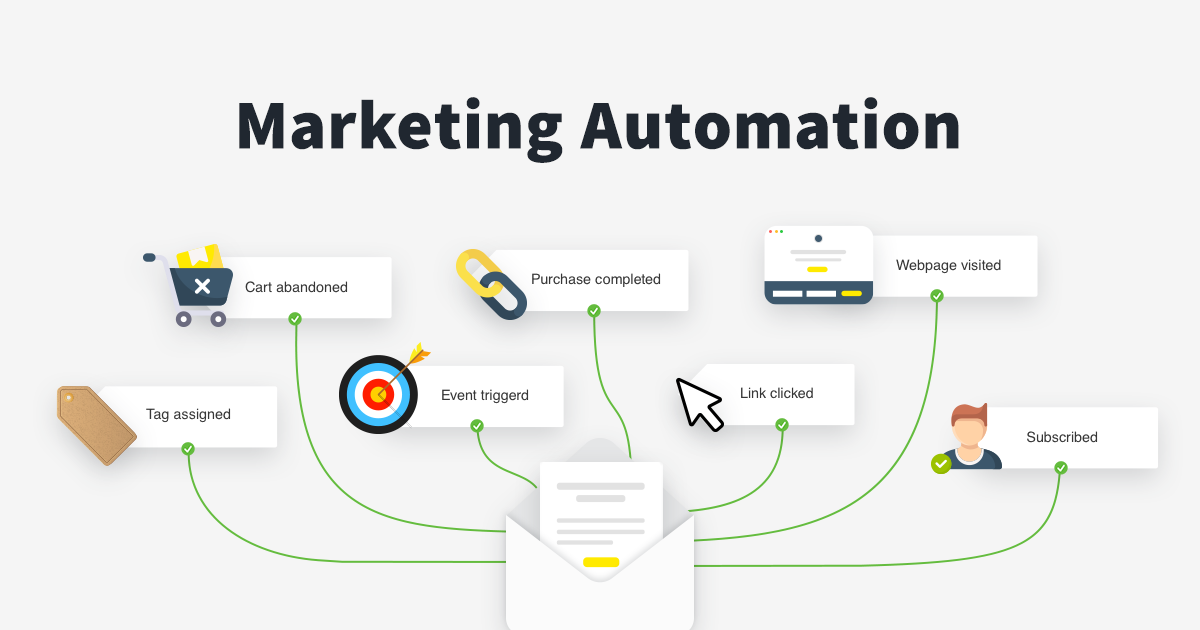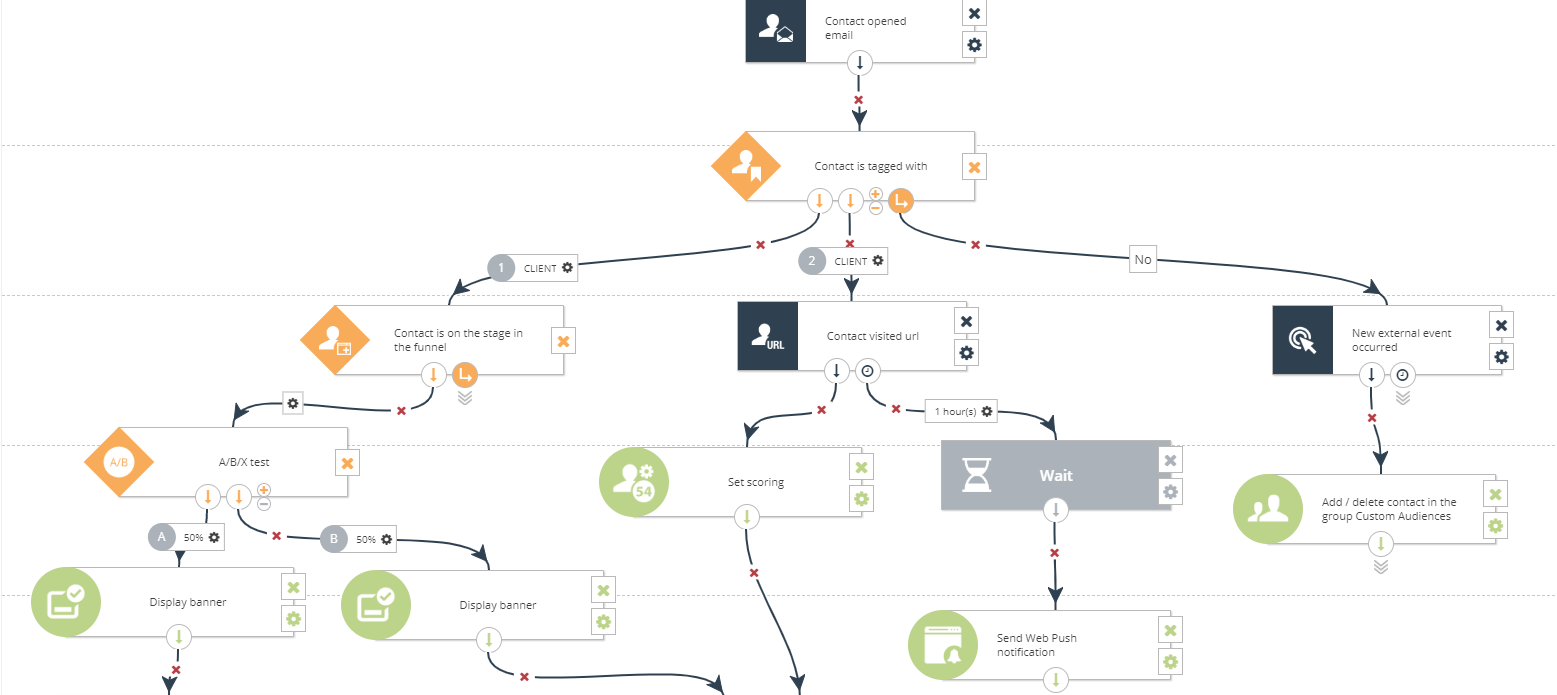
In the evolving world of digital marketing, businesses must do more with less—less time, fewer resources, and leaner teams. That’s where Marketing Automation Workflows become game-changers. At DigiSwarm, we build tailored automation systems that streamline processes, boost productivity, and allow brands to focus on what really matters: customer engagement and revenue growth.
From lead generation to customer retention, Marketing Automation Workflows can transform how businesses operate. Rather than manually sending follow-up emails or assigning leads to sales reps, workflows take care of these repetitive actions automatically. At DigiSwarm, we help brands across industries integrate tools like HubSpot, Mailchimp, ActiveCampaign, and Zoho Campaigns to implement these time-saving systems.
What makes automation even more powerful is its ability to deliver consistent, timely, and personalized messages without human error. This not only improves customer experience but also drastically increases conversion rates. As businesses scale, workflows make it possible to maintain a human touch without constantly hitting “send.”
Why Marketing Automation Workflows Matter in 2025
Today’s consumers expect fast, consistent, and relevant communication. If a lead submits a form, they expect a response within minutes—not hours or days. Marketing Automation Workflows ensure that your business responds instantly with pre-defined messages, resources, or next steps. In 2025, automation isn’t just a luxury—it’s essential.
As businesses expand their digital footprint, managing customer data manually becomes inefficient. Automation systems centralize this data and trigger actions based on behavior, preferences, or demographics. For example, a customer who clicks on a pricing page can be added to a “high-intent lead” workflow automatically.
Moreover, automation enhances lead scoring, segmentation, and personalization. Instead of sending the same email blast to everyone, workflows allow for hyper-targeted campaigns that reflect where the user is in the sales funnel. This significantly improves open rates, click-throughs, and conversions.
Core Benefits of Marketing Automation Workflows
Time Efficiency:
Tasks that once took hours—like sending onboarding emails or following up with leads—can now be completed in seconds. Automation eliminates delays and reduces dependency on staff availability.
Improved Lead Management:
Leads are automatically scored, categorized, and nurtured without missing a beat. Workflows ensure that no lead slips through the cracks.
Consistency and Reliability:
Every contact receives the right message at the right time. This consistency strengthens brand credibility and enhances the user experience.
Scalability:
Whether you have 100 or 100,000 contacts, workflows can manage them all without additional resources. It’s a scalable system that grows with your business.
Data-Driven Insights:
Automation platforms provide analytics on opens, clicks, conversions, and revenue attribution. These insights fuel smarter decision-making.
According to a HubSpot study, businesses that use marketing automation see a 451% increase in qualified leads. That’s a staggering ROI for such a time-saving tool Marketing Automation Workflows.
Types of Marketing Automation Workflows
1. Welcome Series Workflow
When a user signs up for your newsletter or product trial, a welcome series introduces them to your brand, values, and offerings. The first 3-5 emails can include a thank you note, top blog links, a product guide, and an exclusive discount.
2. Lead Nurturing Workflow
Leads that aren’t ready to buy yet can be slowly nurtured through educational content and product demos. These workflows keep your brand top-of-mind until the lead is ready to convert.
3. Abandoned Cart Workflow
In e-commerce, this is a must-have. When users add items to their cart and leave, automated emails can remind them, offer a discount, or highlight product benefits.
4. Re-engagement Workflow
Dormant users can be reactivated using special offers, product updates, or surveys to reignite interest.
5. Post-Purchase Workflow
Thank your customers, provide tips on using the product, and upsell accessories or services. This boosts customer satisfaction and lifetime value.
6. Event or Webinar Reminders
Send automated reminders before and after your events, along with materials or recordings to drive continuous engagement.
7. Feedback Collection Workflow
Send out surveys after purchase or service delivery to collect testimonials, NPS scores, or suggestions for improvement.
Tools That Enable Effective Automation
At DigiSwarm, we work with a range of tools depending on the client’s needs and budget:
-
HubSpot: Full-service CRM with powerful workflow capabilities
-
ActiveCampaign: Ideal for behavior-based automation and email sequences
-
Mailchimp: Great for small businesses with email automation and analytics
-
Zoho Campaigns: Budget-friendly tool with CRM integration Marketing Automation Workflows
-
Klaviyo: E-commerce-focused platform for cart and product automation
-
GetResponse: Known for landing pages, email campaigns, and webinar flows
Each tool has its strengths, and the choice depends on your business model, technical needs, and scalability goals.

How to Build an Effective Workflow
Building a successful Marketing Automation Workflow requires both strategy and execution. At DigiSwarm, we begin by defining clear objectives. Are you trying to convert leads? Improve retention? Increase product usage?
Next, we map the customer journey. What are the key touchpoints? Where do users typically drop off? What content or offers are most effective?
We then choose appropriate triggers for Marketing Automation Workflows.
-
Email Signup
-
Product view
-
Form submission
-
Inactivity after 30 days
-
Abandoned cart
From there, we set actions (send email, assign lead, update CRM field) and conditions (only if a user opened the last email, or is in a specific region). Testing is the final step—A/B testing subject lines, CTA buttons, or send times helps refine effectiveness.
Workflows should be reviewed quarterly. Business goals change, customer behaviors evolve, and what works today may not work tomorrow.
Integrating Workflows with Other Channels
Marketing automation isn’t just about emails. The most effective Marketing Automation Workflows are omnichannel. For example:
SMS Marketing: Send automated reminders, promotions, or updates via SMS.
Social Media Retargeting: Connect workflows to Facebook or Instagram ads based on user behavior.
Web Personalisation: Show dynamic content on your site depending on user segments.
Sales CRM Integration: Assign leads to sales teams automatically and notify them when actions are taken.
Multi-channel automation ensures your brand stays visible and consistent across touchpoints, increasing the chances of conversion. According to a Salesforce State of Marketing report, 78% of high-performing marketers say their customer engagement is data-driven and spread across multiple channels, emphasizing the growing importance of seamless omnichannel experiences.

Common Mistakes to Avoid
While automation is powerful, it’s easy to misuse. Common pitfalls include:
-
Over-automation: Sending too many emails or messages can annoy users.
-
One-size-fits-all workflows: Not segmenting by buyer journey stage leads to poor engagement.
-
Lack of testing: Assumptions without A/B tests result in lower performance.
-
Poor timing: Sending messages too late (or too soon) can cause users to drop out of the funnel.
The key is to strike a balance—automate the routine, personalize the critical, and always track performance Marketing Automation Workflows.
Conclusion: Smarter Marketing Begins With Automation
In an age where every second counts, Marketing Automation Workflows are no longer optional—they’re essential. Whether it’s onboarding a new customer, reviving a cold lead, or upselling after a purchase, workflows bring structure, speed, and strategy to every campaign.
At DigiSwarm, we specialise in designing scalable automation systems tailored to your industry and audience. For businesses looking to partner with the best digital marketing firm in Dehradun, we offer end-to-end marketing automation setups—from CRM integration and content mapping to performance tracking and optimisation.
The future of marketing is automated, intelligent, and customer-first. Let us help you build that future today
